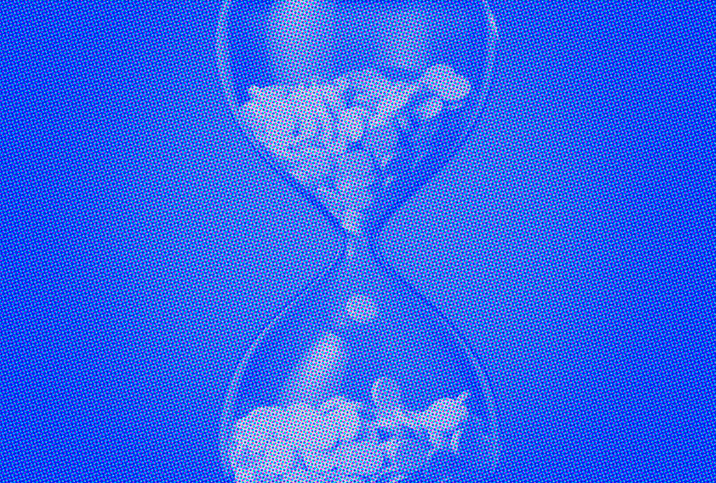Your Sex Life (and Pregnancy) on Antidepressants

"That's a big one," said Vecheslav Fedorchenco, M.D., responding to the question of how antidepressants affect people's intimate lives. "It is that true antidepressants can cause sexual side effects, although not all of them do. Still, a good portion of people taking antidepressants will experience some form of sexual side effect."
While that may sound like grim news, there are numerous considerations when taking antidepressants, said Fedorchenco, a psychiatrist in Texas who works at Heading Health, a practice that offers online and in-person therapy. (And it's not all bad.)
"Antidepressants can both help and hurt your intimacy," said Rhonda Mattox, M.D., a psychiatrist, public speaker and coach in Little Rock, Arkansas.
How antidepressants can help your sex life
"Think about it like this," Mattox said. "With depression can come a decrease in enjoyment for activities you once enjoyed. Activities like sex. When you take an antidepressant, perhaps you begin to feel more like your old self, so you now have more sexual interest."
Depression presents in a variety of ways, but a common manifestation is feelings of apathy and hopelessness and a loss of interest in previously enjoyable activities. It also can cause fatigue, a reluctance to connect with others and physical symptoms like headache or digestive problems. For many people with depression, sex is no longer a priority.
If you're in a partnership, depression can also take its toll. Relationships require effort and communication that may be difficult to come by when you're battling symptoms of depression. A lack of sexual interest can also present a lot of challenges to your relationship.
"The symptoms of depression itself can interfere with someone's sex life, and thus a medication that helps reduce symptoms of depression may be a welcome change," Fedorchenco said.
How antidepressants can hurt your sex life
Antidepressants are known for decreasing libido. But might their reputation be worse than deserved?
"There are certain medications like some selective serotonin reuptake inhibitors—such as Prozac, Zoloft or Lexapro—or serotonin-norepinephrine reuptake inhibitors—such as Cymbalta or Effexor—that can make it more difficult for men to have an erection and can decrease libido or interest in sex for men or women," Mattox said.
These prescribed medications can also make it difficult for someone to have an orgasm. For many people, these are unwanted side effects.
"But the side effects are not always extreme," Fedorchenco said. "Sometimes, people barely notice them. Also, there are a number of ways to reduce the side effects and make them more tolerable. This is when other forms of treatment, such as psychotherapy, can be helpful."
If the side effects from treatments outweigh the benefits and adjusting the dosage doesn't help, there are different classes of medications to try that are less likely to contribute to erectile dysfunction (ED) or decreased libido, according to Mattox.
Most medications come with some level of unwanted side effects, so it may be a matter of finding which side effects you are most willing to tolerate.
"Ultimately, if the side effects are too much, we stop the medication and develop a plan that works," Fedorchenco said.
Recommended
- How Might Antidepressants Impact My Sexual Health?: SSRIs may carry bothersome side effects for men, including dysfunction in the bedroom.
- Upgrade to a Blended Orgasm: Stimulating the anus, vagina and clitoris in combination can take pleasure to the next level.
- When Is It Time to See a Sex Therapist?: Here are a few common reasons you might want to take the plunge into sex therapy.
Can you take antidepressants during pregnancy?
Depression complicates pregnancy. In an ideal situation, avoiding a prescription medication as treatment for depression during pregnancy eliminates any risk to the baby. However, depression isn't ideal, and the best option for many women and their babies is for the mother to take antidepressants while she is pregnant.
Sometimes, not taking an antidepressant is more dangerous for both.
"Untreated depression is unsafe for the mother and the baby," Mattox said. "Depressed mothers may be less likely to seek prenatal care and practice self-care such as eating healthy foods and following their provider's orders. The increased risk of premature birth, low birth weight, decreased fetal growth and other problems for the baby are greater in women with untreated depression."
Moreover, untreated or undertreated depression can lead to difficulty bonding with the baby following delivery.
"Having said that, I recognize the idea of taking medicine is frightening for most soon-to-be parents and even to some degree for birth care providers who may not have much training in mental health," she said.
Mattox always discusses family planning early in her interactions with female patients of childbearing age.
"These family-planning conversations should be initiated long before pregnancy, back when meds are first being considered," she said. "The patient's background and preferences inform the decision-making process every step of the way."
If the client isn't trying to get pregnant, Mattox recommends safe birth control. She will only prescribe higher-risk psychotropics to women of childbearing age who are on long-acting birth control, such as an intrauterine device (IUD).
"And to those who are actively trying to get pregnant or are not using birth control, I only prescribe certain agents that are known to be safer in pregnancy with fewer birth defect risks," she said. "I let my patients know I should be on the list of the first three people they notify when they learn they are pregnant."
'I should be on the list of the first three people they notify when they learn they are pregnant.'
There are circumstances when prescribing medications for depression is essential.
"For women who have severe depression or a history of previous suicide attempts, I won't even blink before prescribing," Mattox said. "I discuss the literature with them and remind them of how untreated depression can be harmful to their unborn babies as well, especially when they've had previous suicide attempts or severe depression."
After they are well-informed, her patients give written consent acknowledging they understand the treatment's risks and benefits. Women who decline treatment also sign a consent agreement, acknowledging the dangers of being unmedicated while pregnant, including potentially poor self-care and risky decision-making.
"As it relates to safety, most drug companies would not dare do drug studies with case controls on pregnant women, for obvious reasons," Mattox said. "The information we know about what's safe and what's not safe has been self-reported after pregnancy."
Running Out of Excuses Not to Orgasm: Starting an aerobic exercise routine might be the key ingredient for more powerful climaxes.
Fedorchenco noted that the topic of perinatal mental health has expanded with a wealth of data researchers never had before.
"Practically, it means that if a woman needs to take medication during pregnancy or while breastfeeding, there are safe choices backed up by good quality evidence," he said. "A visit to a perinatal mental health specialist and a careful consideration of risks and benefits is a must in such instances."
Resources
If you or someone you know is struggling with thoughts of suicide or is feeling depressed and needs help, don't hesitate to seek professional care. At any time of day or night, help is available:
- Call 988 to talk (988lifeline.org to chat) with trained crisis counselors at the Suicide & Crisis Lifeline. They can assist in English or Spanish and have counselors specifically for veterans. This infographic explains what happens when you reach out to 988.
- Call 1-800-662-HELP (4357) for the SAMHSA National Hotline, a confidential, free, 24-hours-a-day, 365-days-a-year information service for individuals and family members facing mental issues or substance use disorders. The service is available for English and Spanish speakers. You may also text your five-digit ZIP Code to 435748 (HELP4U) to access the service.


















